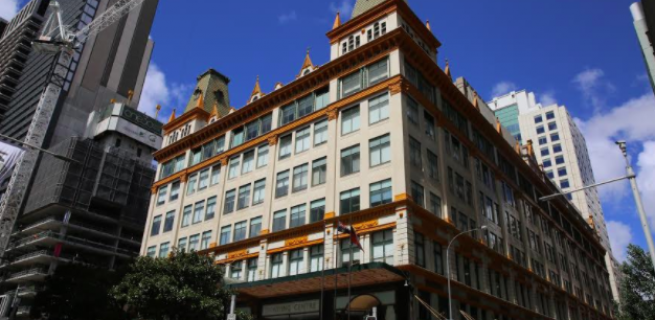By Paul Gregoire and Ugur Nedim
The 23rd of March 2020 was the day the prime minister’s stage 1 COVID-19 restrictions came into play. It was also the day that Michael Kahil suddenly found himself in Sydney’s Downing Centre District Court minus the barrister overseeing his defence during proceedings that commenced on 9 March, two weeks earlier.
Mr Kahil and his co-accused Tony Haddad had been standing trial over charges of conspiracy to import a commercial quantity of a border controlled precursor into Australia, contrary to subsections 11.5(1) and 307.11(1) of the Criminal Code Act 1995 (Cth).
This federal offence can see an individual liable to up to 25 years behind bars and/or a fine of $1,050,000.
Time to withdraw
Mr Kahil’s criminal defence barrister applied to withdraw from the proceedings on that day, as he wanted to isolate during the COVID-19 pandemic.
The 69-year-old lawyer, who has a compromised immune system, was concerned about being exposed to Kahil and his instructing solicitor, as they were both displaying “fluey” symptoms.
The Crown drew attention to the fact that the co-accused had already withdrawn from the trial, before Mr Kahil’s barrister made clear that his application wasn’t solely about his own withdrawal, but for the jury to be discharged, and the trial aborted.
However, NSW District Court Judge Michael King made certain this would not be happening. His Honour refused leave (permission) for the barrister to withdraw, and would not allow the jury to be discharged. If need be, his Honour added, Mr Kahil could appear from a remote location via video link.
The presiding judge further remarked that if the barrister refused to proceed, Kahil’s instructing solicitor could take over the running of the defence.
Considerations at trial
After the barrister made his submissions to withdraw and for a jury discharge, the prosecution stood and told the trial judge that it had instructions from the Commonwealth Director of Public Prosecutions supported that course of action.
The prosecution lawyer expressed to the judge that the defence barrister “ought not, through being required to perform their professional obligations in representing clients, be exposed to unnecessary risk with respect to their health”.
Judge King then suggested that Mr Kahil’s defence case could be taken over by his barrister’s instructing solicitor. However, the barrister submitted that this would be inappropriate as his solicitor hadn’t had much experience in criminal matters, and the current trial was his first instructing a barrister.
After his Honour’s decision, the barrister withdrew of his own accord. And after the jury adjourned for the day, the trial judge gave the inexperienced instructing solicitor some advice on how to proceed alone.
Unfair to proceed
But before his solicitor could take charge, Mr Kahil appealed the judge’s decision to the NSW Court of Criminal Appeal (NSWCCA). He did so under the provisions of section 5F of the Criminal Appeal Act 1912 (NSW), which allows for interlocutory judgements to be disputed.
The decisions that were appealed were, firstly, the trial judge’s refusal to discharge the jury and, secondly, his Honour’s refusal to allow the barrister to withdraw. But due to the way matters unfolded, the NSWCCA justices found it unnecessary to consider the second ground.
NSWCCA Justice Christine Adamson cited a judgement of former High Court Chief Justice Sir Anthony Mason in the 1992 High Court case Dietrich versus The Queen as an authority on the matter.
“The decision whether to grant an adjournment or a stay is to be made in the exercise of the trial judge’s discretion, by asking whether the trial is likely to be unfair if the accused is forced on unrepresented,” the Chief Justice had remarked.
Justice Adamson went onto explain that this “dictum” doesn’t just apply to circumstances where an accused cannot afford legal representation, but also to when a “legal representative is unable to attend for a reason which is not the fault or responsibility of the accused”.
“The trial judge failed to address the key question: whether the trial was likely to be unfair if the applicant were forced on unrepresented,” her Honour reasoned. Thus, Judge King’s “discretion to grant or refuse an adjournment miscarried”.
Based on this, the justice found that the “only legally reasonable conclusion” was that it would be unfair for the trial to proceed without the accused having competent legal representation. Her Honour noted that his course was “positively supported” by the Crown.
Justice Adamson further asserted that nothing in the reasons she provided ought to be taken “as a criticism of the decision by the applicant’s trial counsel to withdraw in the circumstances in which he believed that he had been placed”.
In the time of COVID-19
Both NSWCCA Justices Ian Harrison and Richard Button agreed with the final findings Justice Adamson issued on 30 March 2020.
Justice Harrison added that the reason behind the barrister’s application to withdraw from the trial, or his decision to withdraw despite the trial judge refusing to sanction his application, were irrelevant considerations.
This was due to Mr Kahil suddenly having found himself with inadequate representation in the middle of his trial through no fault of his own, during proceedings that were of a very serious nature. This should have been the chief concern in the trial judge’s mind, regardless of how he got there.
The justice added that the trial judge’s exploration of alternatives to bringing the trial to an end were “to be expected and encouraged”, but to consider continuing with an “inexperienced solicitor”, a new lawyer, or by video link were all inappropriate possibilities.
“Mr Kahil’s right to competent representation at his trial should never have been subverted or compromised by the desire to keep his trial on foot,” Justice Harrison stated.
So, on 30 March, the panel of three justice of the NSWCCA allowed Mr Kahil’s appeal, vacated Judge King’s decision, ordered the jury discharged and trial vacated, and remitted the case to the NSW District Court for a new trial date to be listed.











